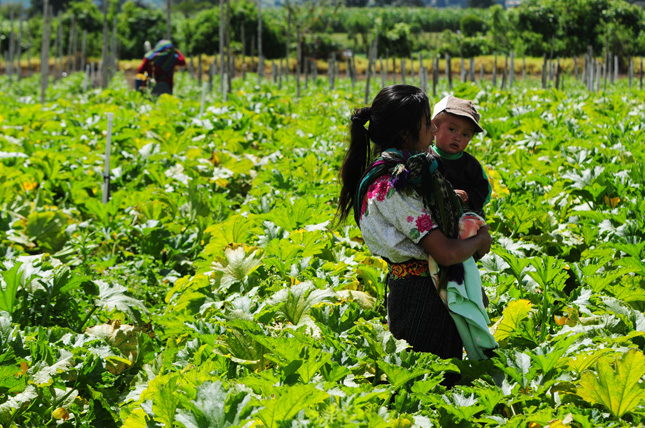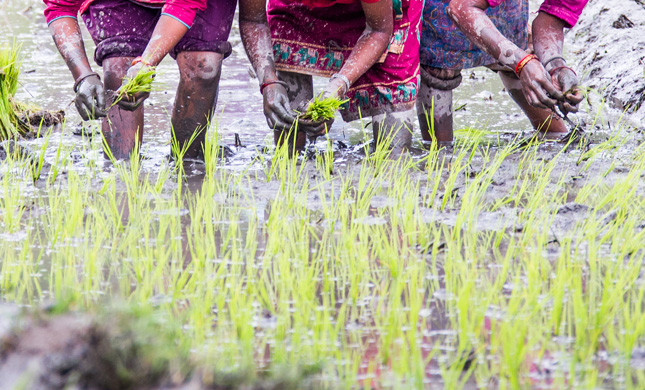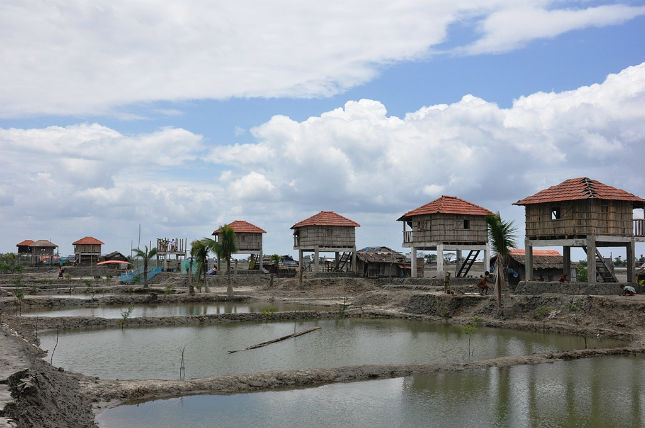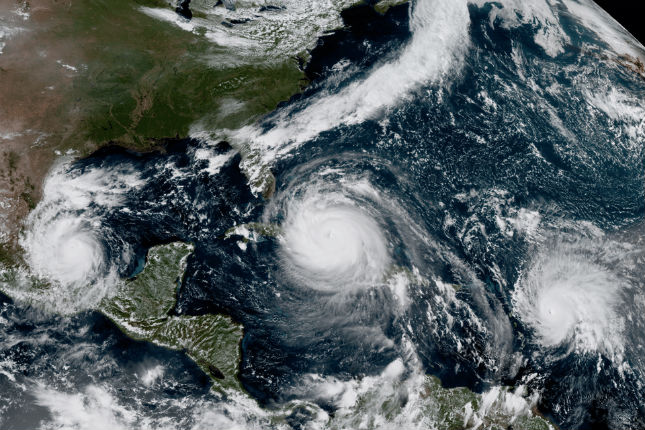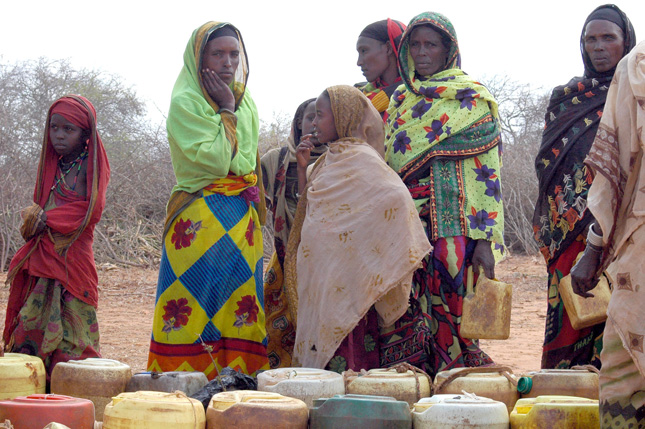-
“Food Power”: American Postwar Diplomacy and Food for Peace
›
Food has long been used by countries to wage both war and peace, and the post-war era of American food dominance is no exception. Bryan McDonald, a professor at Pennsylvania State University, traces the United States’ “Food For Peace” strategy in his recent book, Food Power: The Rise and Fall of the Postwar American Food System, arguing that “food was central to national security” during this period.
-
Beyond Violence: Drought and Migration in Central America’s Northern Triangle
›
Starting in 2014, the number of migrants from Central America’s Northern Triangle—Guatemala, El Salvador, and Honduras—surged, with border apprehensions increasing fivefold from 2010-2015. While apprehensions have declined from their peak, emigration from these countries has not necessarily slowed, and the conditions the migrants are seeking to escape have not changed. Experts blame the region’s widespread criminal violence for spurring migration. But the Northern Triangle countries also share similar ecology, staple crops, and vulnerability to climate events. While environmental and natural resource factors are just part of the complex picture, understanding how they intersect with other migration drivers is key to creating and implementing effective policy responses.
-
From Communities to Landscapes: Multi-Scale Approaches to Climate Adaptation in Nepal
›
“Some people are more vulnerable than others” to climate change, said Judy Oglethorpe, senior director of Multilateral Program Development of the World Wildlife Fund-US (WWF) at a recent event on climate change, biodiversity, and livelihoods. Oglethorpe is the chief of party for the Hariyo Ban (Green Forests) Program, which seeks to increase ecological and community resilience to climate change in two biodiverse landscapes in Nepal. Taking a “multi-scale approach let[s] us focus on the most vulnerable people,” said Oglethorpe, and “work at different scales and across different disciplines…to reduce people’s vulnerability.”
-
“Let’s Start From Here”: Local Solutions for Loss and Damage and Livelihood Resilience
›
Without warning, water rushed into a woman’s home on a raised platform above the floodplain of Bangladesh’s Teesta River. She was just a hand’s distance from her infant son, but she couldn’t stop him from falling into the floodwaters. “She can’t recover back from the trauma,” said the University of Dundee’s Nandan Mukerjee of the mother who lost her child to the currents of climate change.
-
Top 5 Posts for October 2017
›
Hurricanes Irma and Maria devastated Puerto Rico, leaving many on the island without power, drinking water, or cellular service. Such disasters are not just an issue for the Caribbean, said the Wilson Center’s Roger-Mark De Souza in an interview with WOUB that was last month’s most read story on New Security Beat. All coastal areas of the United States, with their growing populations and vulnerable but valuable infrastructure, should be prepared to face more severe climate-related natural disasters.
-
Sustainable Water, Resilient Communities: The Challenge of Too Little Water
›From the Wilson Center // Water Security for a Resilient World // October 27, 2017 // By Gretchen Johnson
Water is a “strategic instrument in the creation of a safer, healthier, more nutritious, less aggressive world,” said Winrock International President and CEO Rodney Ferguson at the first event in a four-part series on water security organized by the Wilson Center and the Sustainable Water Partnership. Panelists at the event identified innovative and integrated efforts necessary to increase global water security in the face of growing water scarcity.
-
GMOs: Can U.S.-China Cooperation Address Public Distrust and Increase Food Security?
›
Today, China feeds 1.38 billion people—approximately one-fifth of the global population—with about 10 percent of the world’s arable land. Compared to the United States, where each acre of land feeds one citizen on average, China has only 0.2 acres per person. This people-to-land mismatch helps explain why 9.3 percent of China’s population was undernourished in 2015.
-
Climate Variability, Water, and Security in El Salvador
›
Water-related challenges in El Salvador have acquired far greater significance over the past decade as they have intersected with other social problems including migration, criminal violence, and drug trafficking. When combined, these factors pose threats to domestic and regional stability. Damaging heavy rains, droughts, and rising temperatures are exacerbated by steadily intensifying El Niño oscillations and threaten the production of staple and export crops. The declining viability of rural livelihoods is driving many farming families to migrate to urban centers or across borders. Food security is a constant concern across the region, and millions already rely on humanitarian assistance. Infrastructure has been damaged repeatedly by floods and raging rivers. El Salvador can mitigate many of these risks by employing ecological landscape restoration. Improving the soil’s capacity to retain and regulate water will help maintain both agricultural and ecological viability.
Showing posts from category agriculture.


